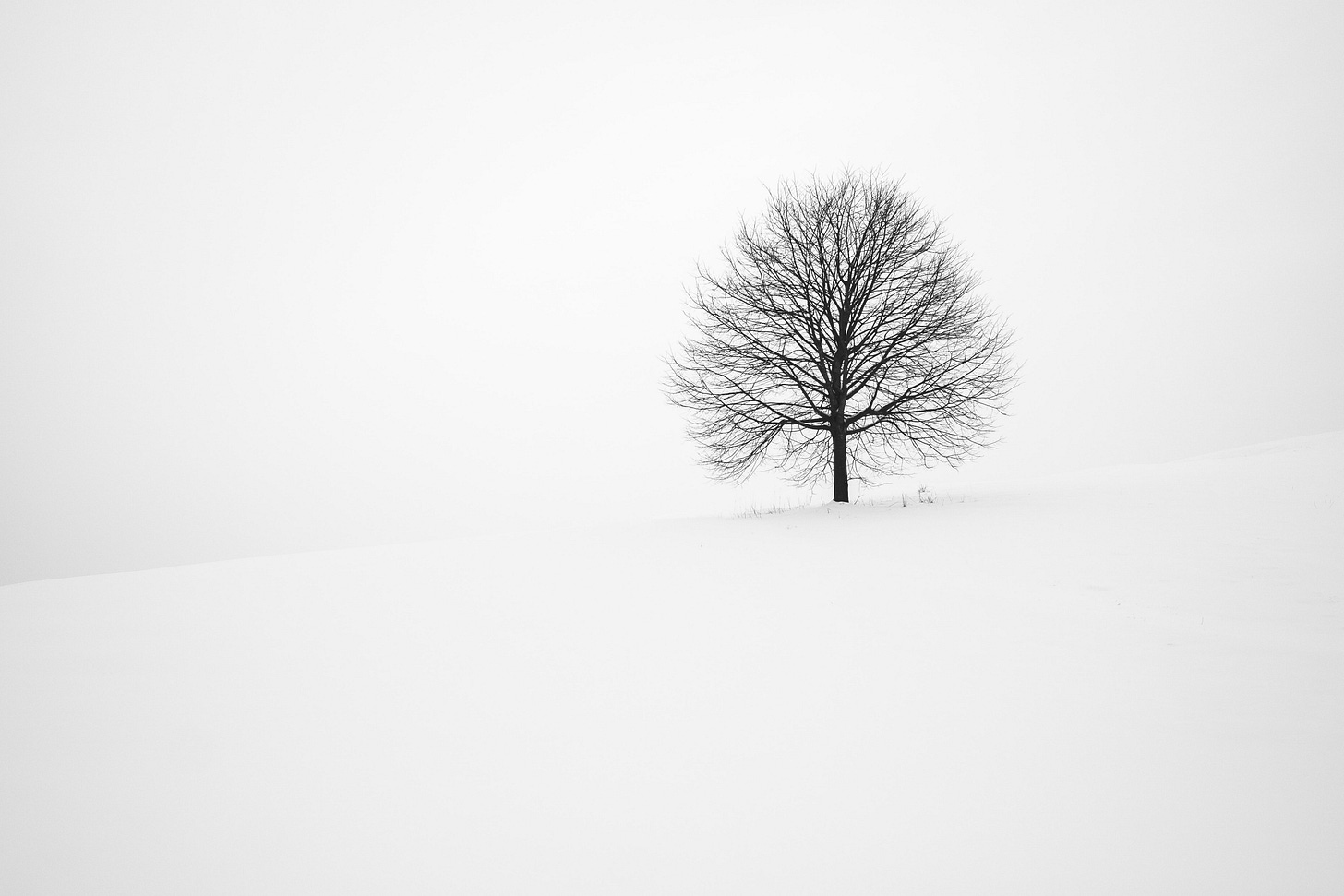Demeter's tears don't freeze, but everything else does. But, sure enough, she gives in and lets herself feel the cold, too. The tears slow until they glitter to a stop: one distant star on each cheek. In this moment, her daughter gone, she becomes still, as still as the marble on which her faced is customarily stamped. Around her, frost fastens and the air hums with a fragile thrill. Life slows down. Horses whicker and stamp, sending up steam. Birds dance from branch to branch, disturbing sprinkles of snow. All is white as Demeter herself whitens in frozen sorrow.
But Persephone will return; she always does. The bargain was that she only needed to spend half her time with Hades. When she returns, the cycle continues: there is a new greening, a quickening of terrestrial pulses. Colour flames within Demeter's cheeks; her spreading smile moves the very currents of the air. Soar, glide, blue, blue! World oozes colour and light and heat. World is sudden and glorious. World is the drunkenness, as MacNeice wrote, of things being various.
This is how we see winter, that season of sadness, and summer, the season of joy. It's easily done. I've recently become rather taken with Douglas Hofstadter and consequently I'm seeing analogies everywhere (he did try to warn me I might). But Katherine May – whom I discovered by way of an excellent article by Maria Popova – wants us to think of the winter a bit differently, because it's the key to thinking about sadness a bit differently. We're trained since childhood to ignore, repress and outright deny sadness, tamping it down and papering over the cracks. By the time we're adults, this has become habitual, but we need to unlearn it. If we don't, we won't ever face the parts of ourselves we're most afraid of. We won't heal. Sadness – and facing it properly – is a skill, which needs to be mastered. Used poorly, our sadness can harm us – that's the whole reason we denied its existence in the first place. But sadness can help us 'self-salve'. Getting within fingertip distance of our sadness can, Rilke wrote of 'great sadnesses' that bring 'great clarity'. And this is where May's idea of 'wintering' comes in.
'Wintering' is to remember that our lives are cyclical, not linear. Persephone won't be with Hades forever. It urges us away from a narrative of self-improvement, because we tend to use that as an excuse to self-flagellate when we don't achieve something perfectly. It isn't about being saved – there's no terminal goal. It's about living and being. Sometimes we need paring back to the bones. This is wintering – we take time to focus in on our sadnesses, the true strings of melancholy wired taut across our chest, and look deeply at them. We let ourselves get cold, freeze over, knowing we'll thaw again.
Our self-worth is important. Poor self-worth can lead to 'vulnerable narcissism', identified by psychologists such as Scott Barry Kaufman as a major contributor to out-group prejudice by way of 'collective narcissism'. If we don't value ourselves, we're vulnerable to hate others, both individually and collectively.
If we're to develop 'communal sharing relationships' (CSRs), such as promoted by Fiske et al. as precipitating the 'sudden devotion emotion', or kama muta, that 'generates a sense of unitary identity, affective devotion, and moral commitment to the CSRs'. That rush of shared love and affection, if we want it, might just come more readily if we're revitalised. And the way to do that is to winter, to feel the keen knife-edge of our internal cold, knowing – soon, soon – it will be warm again.




